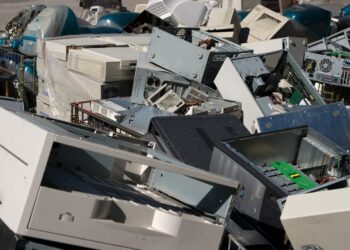The “The Nice Wake-Up Call for an Ambitious Plastics Treaty” statement was released June 10, signed by 95 countries and led by the French government, as the United Nations Ocean Conference is being held from June 9-13 in Nice, France. It aimed to increase pressure on INC members to make progress on the treaty at the International Negotiating Committee 5.2, which will be held Aug. 5-14 in Geneva.
INC-5.2 is an extension of negotiations on a global plastic pollution management treaty under the United Nations Environment Programme, after member countries missed the original deadline to complete a legally binding treaty.
During a press conference, Agnès Pannier-Runacher, France’s environmental minister, said that “we do have a great responsibility towards our citizens who are waiting for concrete solutions and action.”
“We cannot lie to them and we cannot lie to ourselves by saying that better waste management and recycling will be enough to solve the problem,” Pannier-Runacher said. “You know, this is a lie.”
Reactions across stakeholders
On the industry side, the Ellen MacArthur Foundation and the Business Coalition for a Global Plastics Treaty released a statement noting they “welcomed a clear message delivered from governments around the world who have given their backing to a global treaty to end plastic pollution.”
Rob Opsomer, executive lead for plastics and finance at the Ellen MacArthur Foundation, emphasized in the statement the need to focus on the entire lifecycle of plastics, including product design.
“Design is indeed critical to addressing plastic pollution, and it’s encouraging to see it rightly recognised by a majority of countries as a key lever for achieving meaningful and lasting impact to end plastic pollution,” he added. “We call on governments to agree on a treaty in Geneva that turns the tide on plastic pollution, enables a circular economy and delivers strong positive social and economic impact.”
The Business Coalition for a Global Plastics Treaty, which has 280 member companies, said the Nice statement “builds on momentum seen at INC 5.1 in Busan and reflects strong alignment between countries, businesses and civil society on the need for a comprehensive legally binding global agreement that addresses the full lifecycle of plastics.”
The Coalition highlighted the need for globally harmonized national extended producer responsibility plans, which “would support countries in delivering on their national ambitions while ensuring a level playing field for businesses.”
“This clarity and consistency won’t come at the expense of economic growth, as some might believe,” the Coalition noted. “On the contrary, a robust treaty with strong global obligations is the most effective way to tackle plastic pollution while enabling innovation and investment.”
NGOs and environmental groups called the Nice statement a strong start, but added that more work would be needed. The World Wildlife Fund said in a statement that it was a “welcome signal of global cooperation,” but still “the bare minimum to effectively tackle plastic pollution.”
“A treaty fit for purpose must go beyond vague aspirations and include a suite of specific, binding measures, including global bans on the most harmful plastics and chemicals, means to support implementation and a mechanism to strengthen them over time,” said Efraim Gomez, global director for policy impact at WWF International.
Gomez added that with less than two months until INC-5.2, governments “must understand that this vision can and will not be realised through consensus.”
“They must therefore prepare to use all the necessary tools to overcome further delays and deliver the treaty they promised,” Gomez noted.
Ana Rocha, the global plastics policy director at GAIA, the Global Alliance for Incinerator Alternatives, noted that while “we are heartened to see this demonstration of ambition from the majority of countries,” the statement was missing reference to a just transition for informal waste pickers and workers, and did not fully emphasize systems shift, such as reuse and refill, or a financial mechanism.
“While there are several crucial elements missing from the statement, it is a strong starting point for negotiations,” Rocha said. “We now need these Member States to continue to stand their ground, and secure the historic treaty the world needs.”
GAIA also cautioned against green-lighting “harmful waste management approaches like ‘waste-to-energy’ incineration, chemical ‘recycling,’ and plastic credits, which will only exacerbate the plastics crisis.”
Graham Forbes, Greenpeace’s head of delegation to the treaty and global plastics campaign lead, called the statement “the wake-up call the world needs.”
“But this statement only matters if countries back it up with action this August in Geneva at INC-5.2,” Forbes added. “That means no voluntary nonsense, no loopholes, and no surrender to fossil fuel and petrochemical interests. We need a treaty with teeth — one that slashes plastic production, holds polluters accountable and protects people on the frontlines.”































